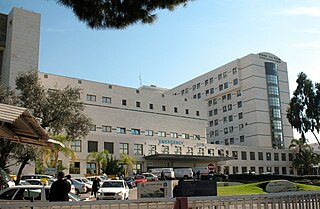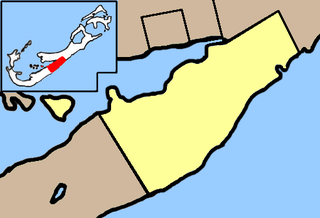
Emergency medicine, also known as accident and emergency medicine, is the medical specialty concerned with the care of illnesses or injuries requiring immediate medical attention. Emergency physicians care for unscheduled and undifferentiated patients of all ages. As first-line providers, their primary responsibility is to initiate resuscitation and stabilization and to start investigations and interventions to diagnose and treat illnesses in the acute phase. Emergency physicians generally practice in hospital emergency departments, pre-hospital settings via emergency medical services, and intensive care units, but may also work in primary care settings such as urgent care clinics. Sub-specializations of emergency medicine include disaster medicine, medical toxicology, ultrasonography, critical care medicine, hyperbaric medicine, sports medicine, palliative care, or aerospace medicine.
In the United States, a health maintenance organization (HMO) is a medical insurance group that provides health services for a fixed annual fee. It is an organization that provides or arranges managed care for health insurance, self-funded health care benefit plans, individuals, and other entities, acting as a liaison with health care providers on a prepaid basis. The Health Maintenance Organization Act of 1973 required employers with 25 or more employees to offer federally certified HMO options if the employer offers traditional healthcare options. Unlike traditional indemnity insurance, an HMO covers care rendered by those doctors and other professionals who have agreed by contract to treat patients in accordance with the HMO's guidelines and restrictions in exchange for a steady stream of customers. HMOs cover emergency care regardless of the health care provider's contracted status.

In the medical profession, a general practitioner (GP) is a medical doctor who treats acute and chronic illnesses and provides preventive care and health education to patients.

Health care or healthcare is the maintenance or improvement of health via the prevention, diagnosis, and treatment of disease, illness, injury, and other physical and mental impairments in people. Health care is delivered by health professionals in allied health fields. Physicians and physician associates are a part of these health professionals. Dentistry, midwifery, nursing, medicine, optometry, audiology, pharmacy, psychology, occupational therapy, physical therapy and other health professions are all part of health care. It includes work done in providing primary care, secondary care, and tertiary care, as well as in public health.

Primary care is the day-to-day healthcare given by a health care provider. Typically this provider acts as the first contact and principal point of continuing care for patients within a healthcare system, and coordinates other specialist care that the patient may need. Patients commonly receive primary care from professionals such as a primary care physician, a nurse practitioner, or a physician assistant. In some localities, such a professional may be a registered nurse, a pharmacist, a clinical officer, or a Ayurvedic or other traditional medicine professional. Depending on the nature of the health condition, patients may then be referred for secondary or tertiary care.

A clinic is a healthcare facility that is primarily focused on the care of outpatients. Clinics can be privately operated or publicly managed and funded. They typically cover the primary healthcare needs of populations in local communities, in contrast to larger hospitals which offer specialised treatments and admit inpatients for overnight stays.
The term managed care or managed healthcare is used in the United States to describe a group of activities ostensibly intended to reduce the cost of providing for profit health care and providing health insurance while improving the quality of that care. It has become the essentially exclusive system of delivering and receiving American health care since its implementation in the early 1980s, and has been largely unaffected by the Affordable Care Act of 2010.
...intended to reduce unnecessary health care costs through a variety of mechanisms, including: economic incentives for physicians and patients to select less costly forms of care; programs for reviewing the medical necessity of specific services; increased beneficiary cost sharing; controls on inpatient admissions and lengths of stay; the establishment of cost-sharing incentives for outpatient surgery; selective contracting with health care providers; and the intensive management of high-cost health care cases. The programs may be provided in a variety of settings, such as Health Maintenance Organizations and Preferred Provider Organizations.
Family medicine (FM), formerly family practice (FP), is a medical specialty devoted to comprehensive health care for people of all ages; the specialist is named a family physician or family doctor. In Europe the discipline is often referred to as general practice and a practitioner as a general practice doctor or GP; this name emphasises the holistic nature of this speciality, as well as its roots in the family. Family practice is a division of primary care that provides continuing and comprehensive health care for the individual and family across all ages, genders, diseases, and parts of the body; family physicians are often primary care physicians. It is based on knowledge of the patient in the context of the family and the community, emphasizing disease prevention and health promotion. According to the World Organization of Family Doctors (WONCA), the aim of family medicine is to provide personal, comprehensive, and continuing care for the individual in the context of the family and the community. The issues of values underlying this practice are usually known as primary care ethics.
Health care prices in the United States describes market and non-market factors that determine pricing, along with possible causes as to why prices are higher than other countries. Compared to other OECD countries, U.S. healthcare costs are one-third higher or more relative to the size of the economy (GDP). According to the CDC, during 2015 health expenditures per-person were nearly $10,000 on average, with total expenditures of $3.2 trillion or 17.8% GDP. Proximate reasons for the differences with other countries include: higher prices for the same services and greater use of healthcare. Higher administrative costs, higher per-capita income, and less government intervention to drive down prices are deeper causes. While the annual inflation rate in healthcare costs has declined in recent decades; it still remains above the rate of economic growth, resulting in a steady increase in healthcare expenditures relative to GDP from 6% in 1970 to nearly 18% in 2015.
Mid-level practitioners, also called assistant practice clinicians, are health care providers who have received different training and have a more restricted scope of practice than physicians and other health professionals in some states, but who do have a formal certificate and accreditation through the licensing bodies in their jurisdictions. Advanced Practice Provider (APP) is a term which Nurse Practitioners, Nurse Anesthetists, Physician Assistants, Clinical Nurse Specialists, and Nurse Midwives prefer for themselves rather than "Mid-level provider". The terms "Mid-level provider" or "Mid-level practitioners" have been widely accepted for many years however, they are now seen as derogatory and offensive. Many providers simply prefer their professional title, such as nurse practitioner (NP) or physician assistant (PA).
Health insurance in the United States is any program that helps pay for medical expenses, whether through privately purchased insurance, social insurance, or a social welfare program funded by the government. Synonyms for this usage include "health coverage", "health care coverage", and "health benefits". In a more technical sense, the term "health insurance "is used to describe any form of insurance providing protection against the costs of medical services. This usage includes private insurance and social insurance programs such as Medicare, which pools resources and spreads the financial risk associated with major medical expenses across the entire population to protect everyone, as well as social welfare programs like Medicaid and the Children's Health Insurance Program, which both provide assistance to people who cannot afford health coverage.

Healthcare in Israel is universal and participation in a medical insurance plan is compulsory. All Israeli residents are entitled to basic health care as a fundamental right. The Israeli healthcare system is based on the National Health Insurance Law of 1995, which mandates all citizens resident in the country to join one of four official health insurance organizations, known as Kupat Holim which are run as not-for-profit organizations and are prohibited by law from denying any Israeli resident membership. Israelis can increase their medical coverage and improve their options by purchasing private health insurance. In a survey of 48 countries in 2013, Israel's health system was ranked fourth in the world in terms of efficiency, and in 2014 it ranked seventh out of 51. In 2015, Israel was ranked sixth-healthiest country in the world by Bloomberg rankings and ranked eighth in terms of life expectancy.
Healthcare in Finland consists of a highly decentralized three-level publicly-funded healthcare system and a much smaller private sector. Although the Ministry of Social Affairs and Health has the highest decision-making authority, the municipalities are responsible for providing healthcare to their residents.
In the United States, direct primary care (DPC) is a type of primary care billing and payment arrangement made between patients and providers, without sending claims to insurance providers. It is an umbrella term, incorporating various health care delivery systems that involve direct financial relationships between patients and health care providers.
Health care in Slovenia is organised primarily through the Health Insurance Institute of Slovenia.

Healthcare in Belgium is composed of three parts. Firstly there is a primarily publicly-funded healthcare and social security service run by the federal government, which organises and regulates healthcare; independent private/public practitioners, university/semi-private hospitals and care institutions. There are a few private hospitals. Secondly is the insurance coverage provided for patients. Finally, industry coverage; which covers the production and distribution of healthcare products for research and development. The primary aspect of this research is done in universities and hospitals.
An Accountable Care Organization (ACO) is a healthcare organization that ties payments to quality metrics and the cost of care. ACOs in the United States are formed from a group of coordinated health-care practitioners. They use alternative payment models, normally, capitation. The organization is accountable to patients and third-party payers for the quality, appropriateness and efficiency of its services. According to the Centers for Medicare and Medicaid Services, an ACO is "an organization of health care practitioners that agrees to be accountable for the quality, cost, and overall care of Medicare beneficiaries who are enrolled in the traditional fee-for-service program who are assigned to it".

The nation of Liechtenstein has a universal health care system with decentralized, free market elements through mandated health insurance coverage for every person residing in the country.
An adult-gerontology nurse practitioner (AGNP) is a nurse practitioner that specializes in continuing and comprehensive healthcare for adults across the lifespan from adolescence to old age.











